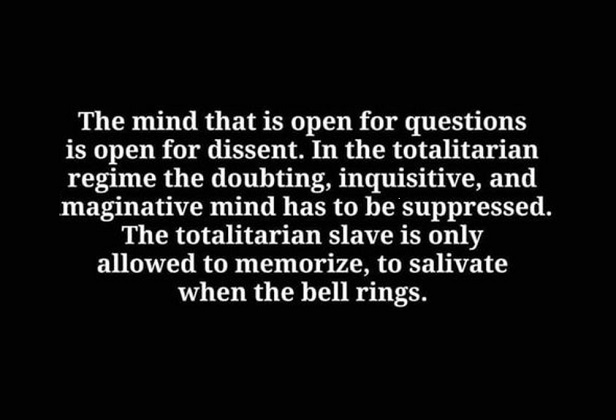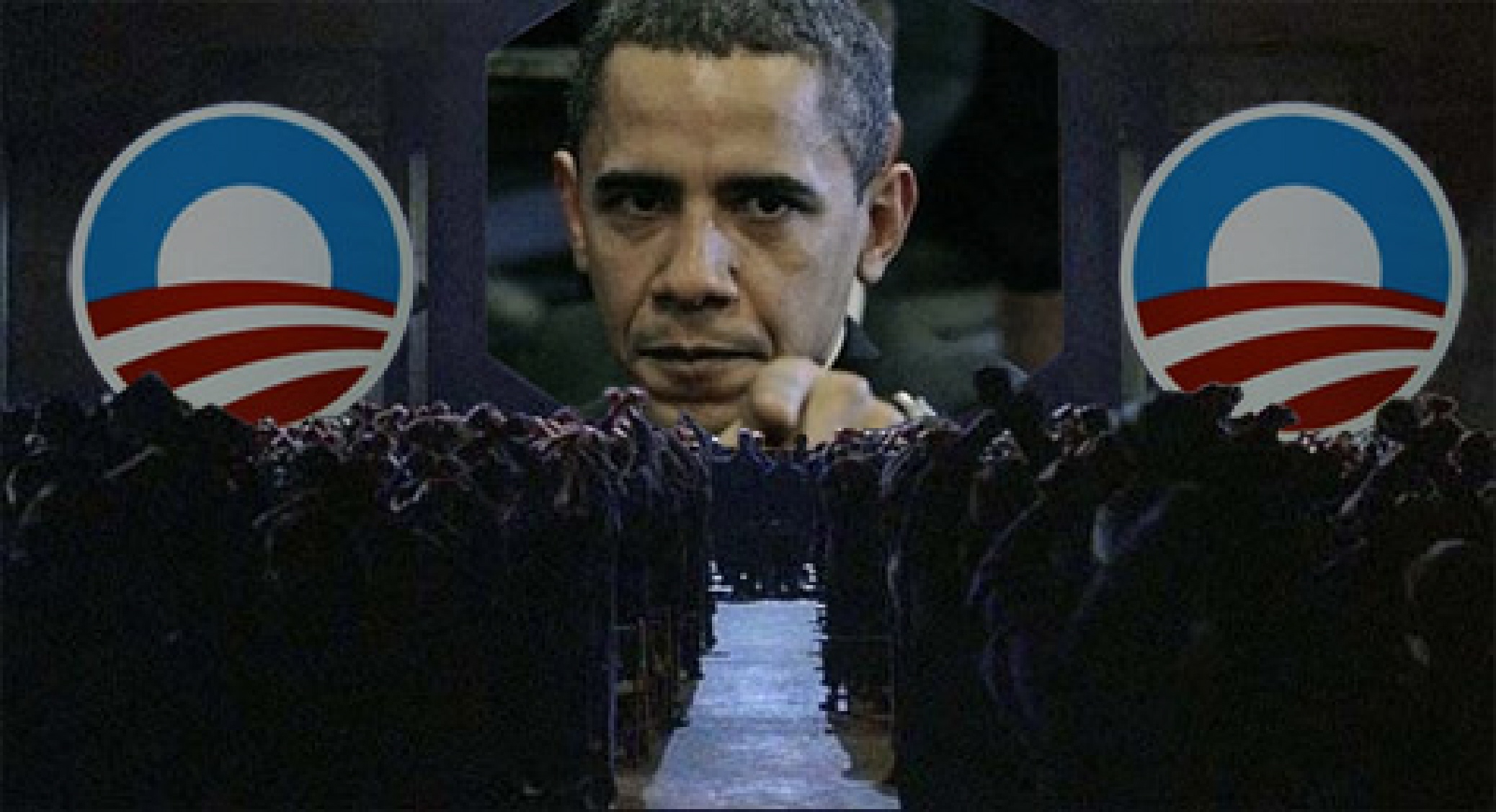Tag: Totalitarians
The New Totalitarians Are Here
A great piece by Tom Nichols. Have you seen examples of this in your everyday life?
There’s a basic difference in the traditions of political science between “authoritarians” and “totalitaritarians.” People throw both of these words around, but as is so often the case, they’re using words they may not always understand. They have real meaning, however, and the difference between them is important.
Simply put, authoritarians merely want obedience, while totalitarians, whose rule is rooted in an ideology, want obedience and conversion. Authoritarians are a dime a dozen; totalitarians are rare. The authoritarians are the guys in charge who want to stay in charge, and don’t much care about you, or what you’re doing, so long as you stay out of their way. They are the jefe and his thugs in a brutal regime that want you to shut up, go to work, and look the other way when your loudmouthed neighbor gets his lights punched out by goons in black jackets. Live or die. It’s all the same to the regime.
Totalitarians are a different breed. These are the people who have a plan, who think they see the future more clearly than you or who are convinced they grasp reality in a way that you do not. They don’t serve themselves—or, they don’t serve themselves exclusively—they serve History, or The People, or The Idea, or some other ideological totem that justifies their actions.
They want obedience, of course. But even more, they want their rule, and their belief system, to be accepted and self-sustaining. And the only way to achieve that is to create a new society of people who share those beliefs, even if it means bludgeoning every last citizen into enlightenment. That’s what makes totalitarians different and more dangerous: they are “totalistic” in the sense that they demand a complete reorientation of the individual to the State and its ideological ends. Every person who harbors a secret objection, or even so much as a doubt, is a danger to the future of the whole project, and so the regime compels its subjects not only to obey but to believe.
This is what George Orwell understood so well in his landmark novel “1984.” His dystopian state doesn’t really care about quotidian obedience; it already knows how to get that. What it demands, and will get by any means, is a belief in the Party’s rectitude and in its leader, Big Brother. If torturing the daylights out of people until they denounce even their loved ones is what it takes, so be it. That’s why the ending of the novel is so terrifying: after the two rebellious lovers of the story are broken and made to turn on each other, the wrecks left by the State are left to sit before the Leader’s face on a screen with only one emotion still alive in the husks of their bodies: they finally, truly love Big Brother.


